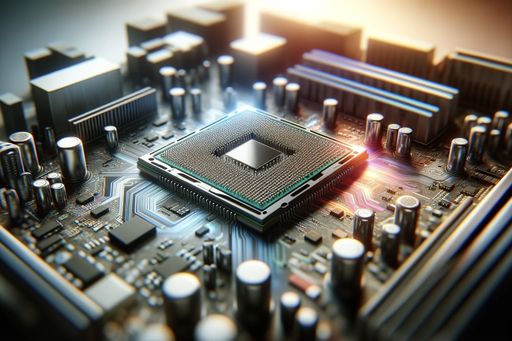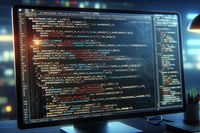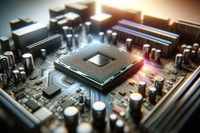Quantum Advantage: A Physicist Explains The Future of Computers
Quantum advantage is the milestone the field of quantum computing is fervently working toward, where a quantum computer can solve problems that are beyond the reach of the most powerful non-quantum, or classical, computers.

The Source of Quantum Computing's Power
Central to quantum computing is the quantum bit, or qubit. Unlike classical bits, which can only be in states of 0 or 1, a qubit can be in any state that is some combination of 0 and 1. This state of neither just 1 or just 0 is known as a quantum superposition. With every additional qubit, the number of states that can be represented by the qubits doubles.
This property is often mistaken for the source of the power of quantum computing. Instead, it comes down to an intricate interplay of superposition, interference and entanglement.
Interference involves manipulating qubits so that their states combine constructively during computations to amplify correct solutions and destructively to suppress the wrong answers.
Applications of Quantum Computing
Quantum computing has a range of potential uses where it can outperform classical computers. In cryptography, quantum computers pose both an opportunity and a challenge. Most famously, they have the potential to decipher current encryption algorithms, such as the widely used RSA scheme.
In addition, quantum computing can dramatically speed up quantum simulation: the ability to predict the outcome of experiments operating in the quantum realm. Famed physicist Richard Feynman envisioned this possibility more than 40 years ago.
Another use of quantum information technology is quantum sensing: detecting and measuring physical properties like electromagnetic energy, gravity, pressure and temperature with greater sensitivity and precision than non-quantum instruments.
Staying Coherent and Overcoming Errors
The quantum computing field faces significant hurdles in hardware and software development. Quantum computers are highly sensitive to any unintentional interactions with their environments. This leads to the phenomenon of decoherence, where qubits rapidly degrade to the 0 or 1 states of classical bits.
Building large-scale quantum computing systems capable of delivering on the promise of quantum speed-ups requires overcoming decoherence. The key is developing effective methods of suppressing and correcting quantum errors, an area my own research is focused on.
In navigating these challenges, numerous quantum hardware and software startups have emerged alongside well-established technology industry players like Google and IBM.



